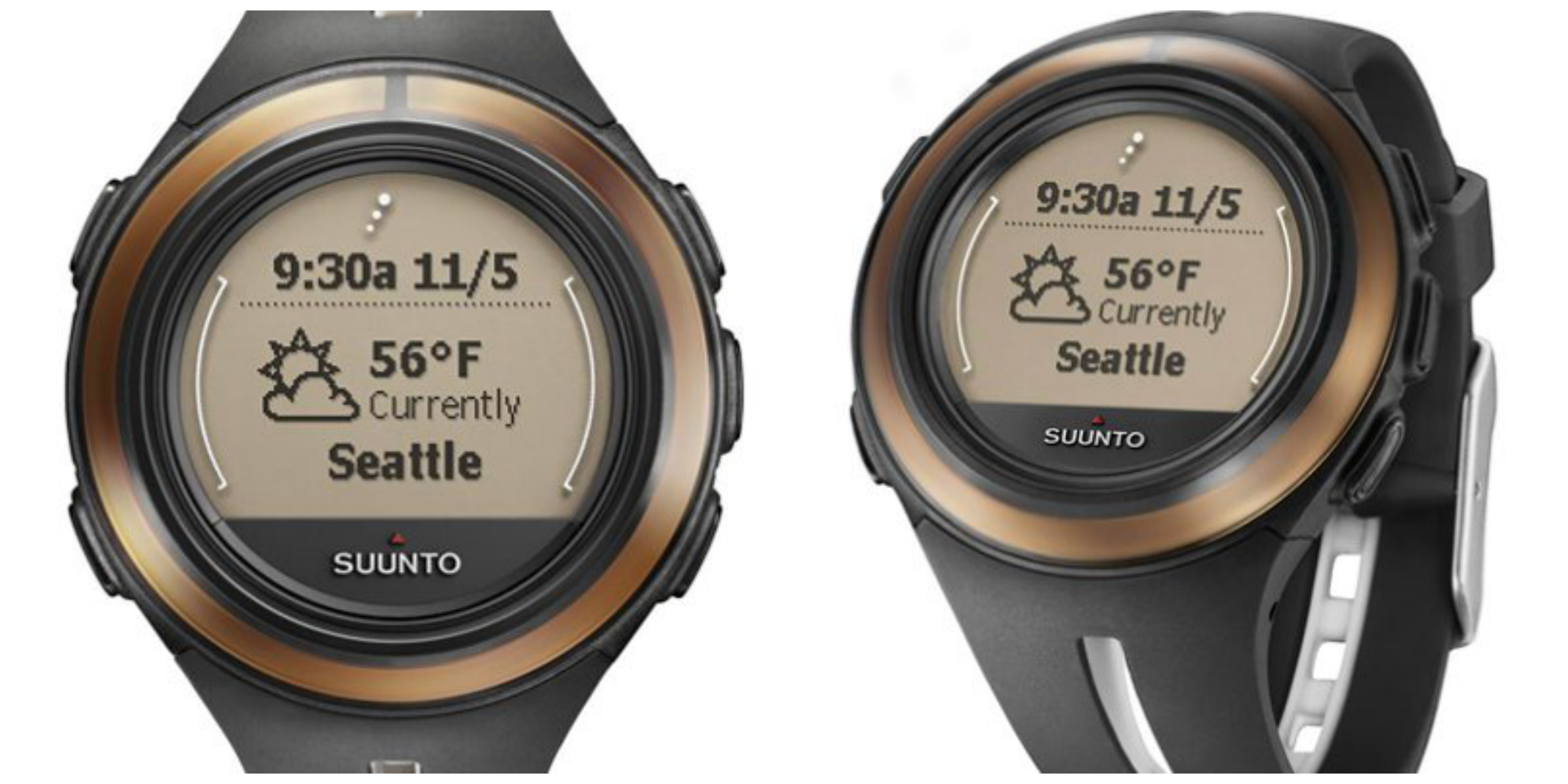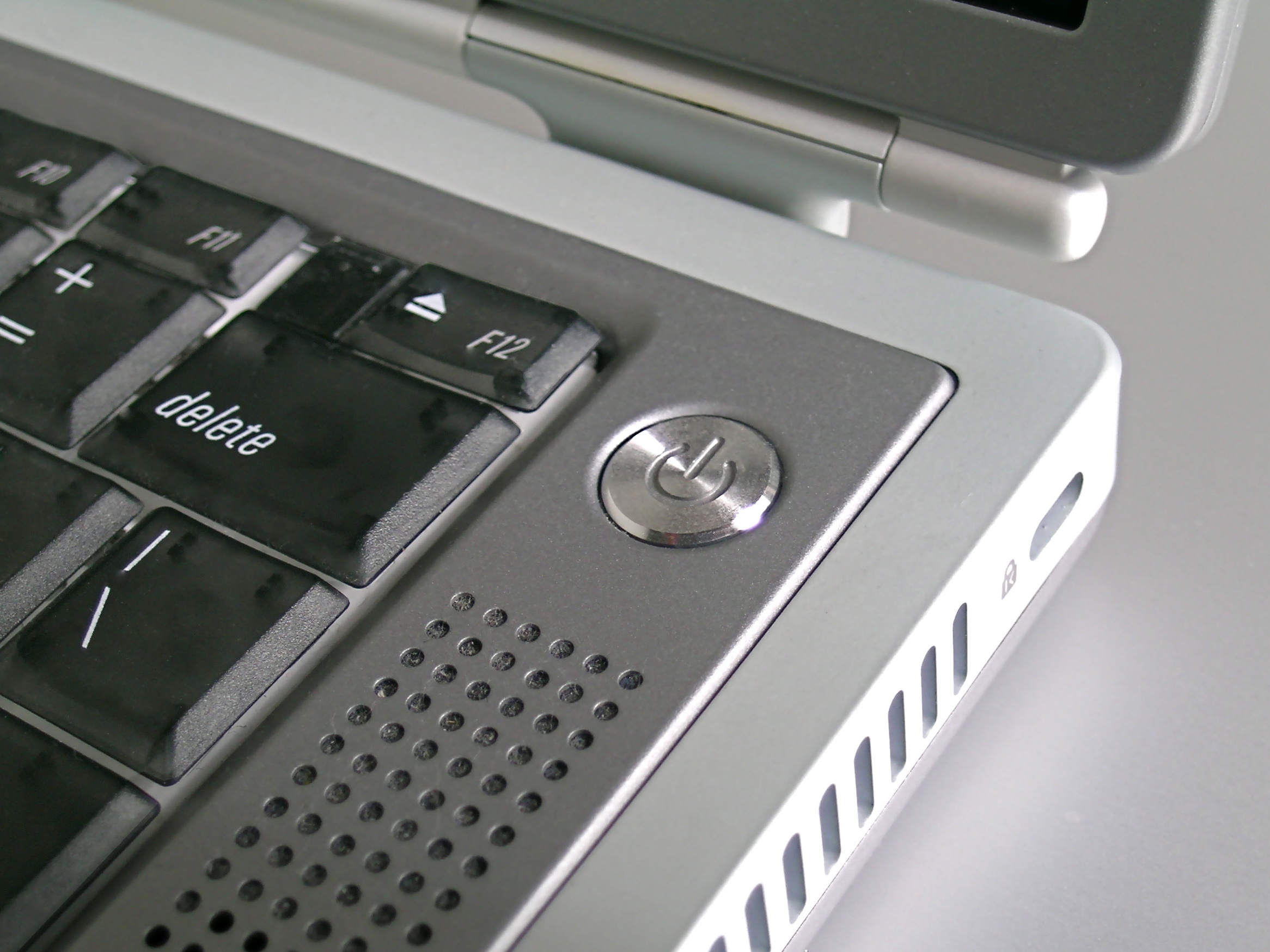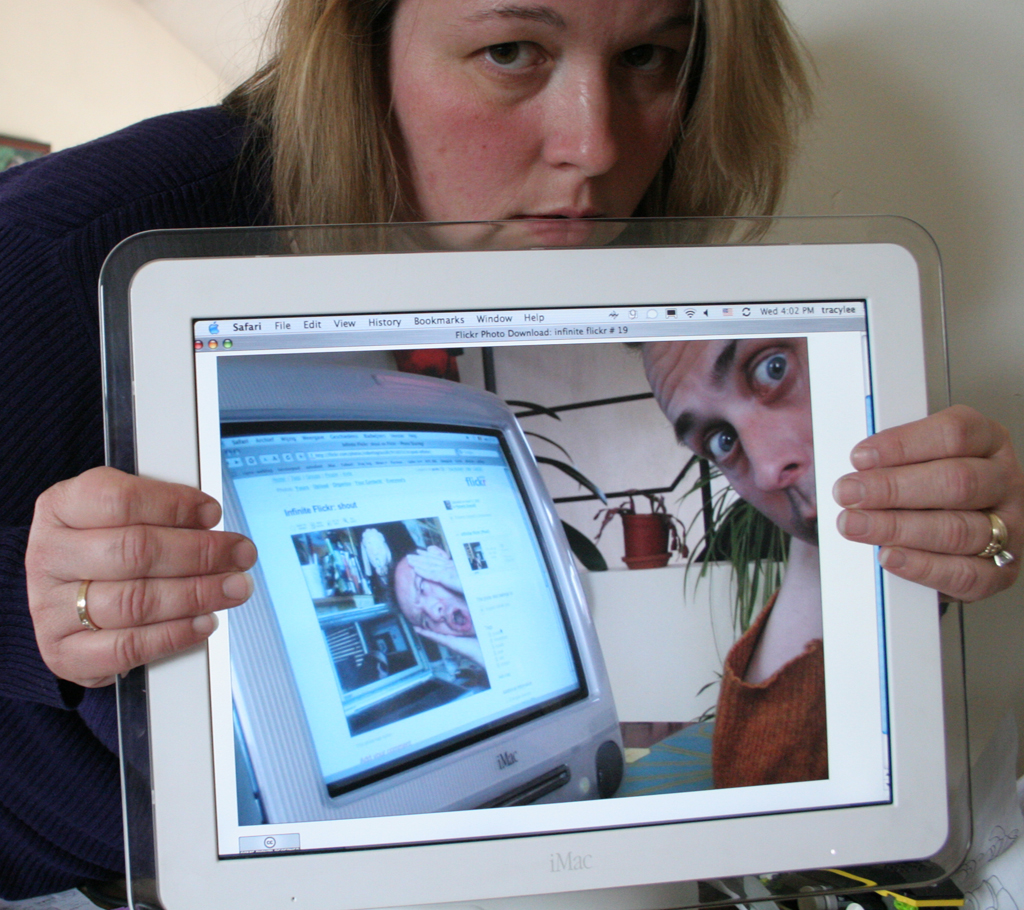This afternoon, I put the 20D to the test during a visit to the Smithsonian Air & Space Museum. The SmugMug photo album shows off some of I snapped today. These were all taken without […]


This afternoon, I put the 20D to the test during a visit to the Smithsonian Air & Space Museum. The SmugMug photo album shows off some of I snapped today. These were all taken without […]

I am working with my new Canon EOS 20D digital SLR, which I bought after a buddy snatched up my Nikon D70 for his dad. I highly recommend the camera to anyone who can afford it and either takes pictures professionally or, like me, is moving into serious amateur photography. Warning: This camera could easily be more than what most people need.
For me, the 20D is a rude indictment about how ill-prepared I am to move to digital SLRs. My problem isn’t so much photo basics but understanding lenses, their idiosyncrasies, and what might be right for this camera and my shooting needs.

Earlier this year, I blogged about my troubled switch back and forth between PCs and Macs, eventually moving to the Mac for good. Not so. A good buddy bought the PowerBook I purchased back in March, and I put that money into buying a Sony S150, which is a Windows notebook that I’ll blog about sometime soon.
The switch came for many reasons. For one, my boss expressed concerns about a difference in the quality of analyst my reports. I attributed the problem to my working on a Mac fulltime and becoming too distanced from the Windows world; of course, I used a Windows machine everyday, too, but the Mac proved a distraction. I saw the same problem back when I worked as a reporter covering Microsoft. The problem: I like my Mac and didn’t want to switch.

My buddy Jim Dalrymple told me about the so-called iPod zombies of New York. He’d read a post somewhere about how so many New Yorkers used iPods that the streets had become a sea of white […]

Today, I got a Suunto n3 watch, which uses Microsoft’s MSN Direct service to deliver news, weather, stocks, sports scores, instant messages, and even Outlook calendar data to the timepiece. This is the second watch […]

It’s funny how far the protagonists championing either PCs or Macs will go to push their cause. I moseyed into my local CompUSA on Jan. 19, 2003, where I found two ViewSonic representatives showing off Microsoft Windows Powered Smart Displays in the store’s Mac section. As I approached, one of the salesmen lithely snatched two shoppers eyeing an Apple iBook and pitched them on a Smart Display.
I returned later when the salesmen was alone and piped, “Say, you’re going to scare all the Mac customers away.” “That’s the idea,” he shot back. I must have made some kind of brilliant observation, because he gave my daughter a set of promo street style headphones for my troubles. So, now she can wear a Windows logo while plugged into an Apple iPod.

Many computer manufacturers are hawking thin-and-light notebooks as the next big thing. Dell Computer, Gateway, Hewlett-Packard, IBM, Sony, and Toshiba are some of the big name companies delivering small portables, some weighing under 3 pounds. But none of these companies has achieved notebook nirvana, a slim-and-light model with a beefy display and enough power to replace a desktop computer. Consumers that want desktop power must buy heavy-set portables, many weighing as much as 8 pounds or more. Those people looking for true portability have had to accept less computing power and smaller displays.
Until now.
Apple’s 800MHz PowerBook G4 meets the demands of the consumer looking for a svelte design that’s light on weight but not light on features. You think one size can’t fit all? That’s because you haven’t seen the Titanium PowerBook in action.

Apple Computer is well known for its “Think Different” slogan, but that doesn’t mean the company thinks smart. If anything, Apple’s recent launch of the revamped iMac demonstrates there’s not much thinking going on at all in Cupertino—that is unless the company is trying to write the textbook on how to totally screw up an extremely important new product launch. If that’s Apple’s idea of thinking different, well, congratulations on a job well done because it’s looking like the new iMac’s launch debacle will be more talked about than the fate of the ill-fated Cube.
Apple’s problem: The iMac product shortage. Financial analysts and some media outlets have taken note of the crisis—and I must state firmly that it is a very serious crisis. This is no typical product shortage brought on by high demand for a hot, new computer. Worse, the timing of the shortage coupled with the importance of the new iMac to Apple are major disasters that could have been avoided. Strongest sales usually take place right after a product’s introduction, a phenomenon that typically cannot be recovered at a later time. In characteristic fashion, Apple is silent about the shortages, instead touting 150,000 early orders. (For the record, an Apple retail store representative on March 3, 2002, said the number had increased to 200,000.)

Until recently, I had never owned a name-brand computer. Really. All my systems were custom-built jobs made for easy upgrade ability and packed with solid-performing hardware. My last system, built around Intel’s 430 chip set with 150 MHz Cyrix 6×86 processor, 64 MB of RAM, 4 MB Diamond graphics card, 3.1 GB Western Digital hard drive and NEC 17 inch monitor, is a UNIX Web server in Presque Isle, Maine. I sold it before abandoning the far northern reaches for a more-southern city.
I decided a notebook would better suit my new job and our small apartment. My 2½-year old daughter would get the room that in other times would have been an office. I chose, with great anxiety, a Micron Millennia Transport. The Millennia Transport was a favorite when testing portables for review and Micron offered a 15 percent reporter’s discount.

Recently, I had the unfortunate experience of helping a friend, who is an accountant, troubleshoot a computer problem. Unfortunate, because we couldn’t easily solve his problem. He had a major PC meltdown.
While no computer genius, my friend knows enough to poke around the inside of his PC. He had bought a second printer, this one color, from a local store—and a LPT card so he could run two printers. The process of opening up the PC, inserting the card into the right slot, closing up the box, and restarting the computer should have been easy. He knows enough about a PC to do this confidently. But, as Murphy says: “Anything that can go wrong…”

Good help is hard to find—and that is especially true when it comes to mastering computers. Things eventually go wrong. Where should you turn to solve your problem? Corporations staff a Help Desk to field employee questions or troubleshoot breakdowns. If you work at home—or live in some out-of-the-way place like northern Maine—you probably don’t have that luxury. But you can create your own pseudo Help Desk for handling problems.
Most computer problems are user problems—and there are two basic categories: You don’t know how to make something work or the product is actually broken. Most of the time you simply won’t know what you’re doing—and experience is the only way to learn. Most people think that because computer hardware or software do not work the way they expect, something must be broken. Is it the auto dealer’s problem you bought a new car and don’t know how to drive? It’s not a computer company’s problem you can’t tell a computer from a television, either (though they sure make it hard when turning computers into family entertainment centers). When dealing with any problem, first you have to identify whether you have a real crisis or just don’t understand what you are doing. Most problems will be a lack of training.

I am an advocate of anti-virus software. Before writing on technology, I was editor for an academic publication in Washington, DC. It was policy professors make submissions on diskette—which invariably were infected with computer bugs. And on a network this was a disaster. Idiot editors would copy files from unchecked disks to their PCs and infect every computer.
You might think you are safe from this kind of contamination, but, believe me, you are not. Of potentially disastrous consequences to small businesses is a new type of macro virus that targets word processing or spreadsheet documents, mainly Microsoft Word and Excel. Since most people use these programs, this is a big problem.